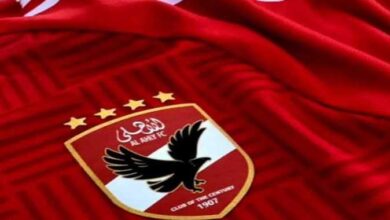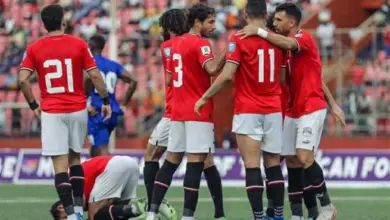In light of the ongoing Egypt-Algeria football controversy, local sports commentators and news outlets have spoken of the need for diehard football fans to support the Egyptian national team and to protect Egyptian spectators. Such calls have grown increasingly strident since the violent acts of hooliganism — variously referred to in the local press as “Algerian terrorism” and “barbaric assaults” — perpetrated in Sudan on 18 November, which resulted in the injury of some 15 Egyptian fans.
Egyptian sportscasters and pundits have repeatedly called for the enlistment of rough-and-ready fans from working-class districts of Cairo ahead of scheduled matches in order to confront would-be hooligans. There have also been calls for the mobilization of Egypt’s "football fundamentalists," known as the "Ultras." Had these two elements been present at the match in Sudan, the Egyptian team would have won the game and Egyptian fans would have been safe from Algerian hooliganism — at least that’s the argument.
In Latin, the term "Ultra" means “beyond,” while its current, local usage refers to the enthusiasm of sports fans that goes far beyond that of normal people. The label first emerged in the late 1960s when it was used to describe the hardest-core fans of football teams in the UK, Europe and South America. With their choreographed "tifo" displays, these dedicated sports fundamentalists would show up at matches in the hundreds or thousands, often equipped with flares, drums and massive banners.
The term “Ultras” does not only apply to fanatics of football, but also to those of other sports, including basketball, volleyball and handball.
In Egypt, there are five distinct groups of Ultras that support five different football clubs. The Zamalek’s White Knights and Ultras Ahlawy were established in 2007, to be followed by the Masry’s Green Eagles, Ismaili’s Yellow Dragons and the Ultras 300 of Tanta.
A leading member of the White Knights, speaking on condition of anonymity, told Al-Masry Al-Youm that the match in Sudan had been attended by only a handful of Ultras.
“Only a few of our members attended. This is because none of the Ultras support the national team per se," he said. "There are no Ultras for the Egyptian national team — only normal fans and some ordinary hooligans. But we Ultras go above and beyond this level of support.
“While it’s true there was a bus loaded with Ultras — including both White Knights and Ahly Ultras — in Sudan, this was an exception," he added. "This isn’t the way we operate. None of the Ultras would organize for the national team, only for their respective clubs.”
Nonetheless, "this busload of Ultras confronted the Algerian hooligans and was able to protect female Egyptian football fans in the area," he added.
The White Knight went on to describe what happened in Sudan as "nothing out of the ordinary."
"The level of Algerian hooliganism was in no way exceptional. We frequently see higher levels of violent hooliganism between competing Egyptian clubs both during and after matches, where scuffles break out and stones are thrown," he said. "In fact, we Ultras sometimes attack our own club members and managers when their performances fall into decline. This is our way of encouraging them to improve their performance."
He went on to refer to one Zamalek basketball fan who suffered serious burns in February 2008 when Ahly fans hurled incendiary bombs at Zamalek fans following the defeat of their team.
“Eleven of our fans have been imprisoned and nine have been charged with assaulting soldiers following a match in 2008 between the army’s football team and Zamalek,” he said. "Following Zamalek’s defeat, our fans pelted soldiers with stones and the soldiers retaliated in kind. Soldiers even unleashed dogs on us… The Algerian hooliganism that took place in Sudan pales in comparison to the violent hooliganism that takes place here in Egypt — or anywhere else in the world for that matter,” he concluded.
Similar “football wars” have been fought in the past, including a full-fledged military conflict in July 1969 following FIFA World Cup qualifying matches between El Salvador and Honduras. With El Salvador’s victory, nationalist sentiments where whipped into a frenzy by media from both sides until war was formally declared. Over 2,000 civilians — mostly Honduran — and some 1,000 troops from both countries were killed in the violent aftermath, while another 300,000 civilians — mostly Salvadoran — were rendered homeless.




